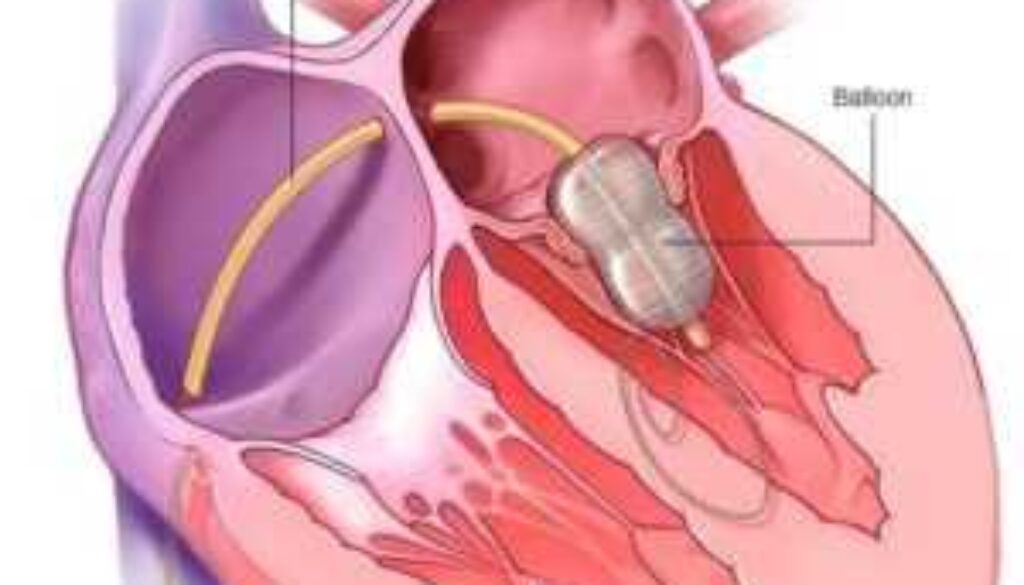Mitral Valve Repair (Replacement) in Hyderabad | Dr Sarat Chandra
Mitral valve repair and mitral valve replacement are the procedures performed to treat diseases of the mitral valve [located between the left heart chambers (left atrium and left ventricle)]. It is one of the heart’s four valves.
Mitral valve is located between the left chambers of the heart (left atrium and left ventricle). It is affected by several types of conditions including the following:
Mitral valve stenosis [valve leaflets (flaps) become stiff and thick (join together)]. Owing to which the valve is unable to open fully. It causes reduced blood flow through the valve.
Mitral valve regurgitation [valve leaflets (flaps) close loosely] causes the blood to leak backward into the left atrium. The flaps (leaflets) of the valve bulge back (mitral valve prolapse) and cause this condition.
The treatment for mitral valve disease depends on the severity of the condition and the signs and symptoms associated with it
Signs and symptoms of mitral valve disease include weakness, fatigue, shortness of breath, dizziness, palpitations, chest pain, and edema (swelling of the feet and arms)
When you consult a cardiologist for mitral valve repair in Hyderabad, he or she, first of all, sees whether your condition is getting worse. And then, evaluates you. Your doctor asks a few questions, conducts a physical examination, reviews your medical history, and then recommends a few tests.
If you have mild symptoms or no symptoms, your doctor may advise monitoring your condition. And the condition is mild, your doctor will monitor it with regular evaluations. If you have symptoms with a mild condition, your doctor may prescribe medicines to manage symptoms. You may not need surgery in this case.
Why You Need Mitral Valve Repair or Replacement?
Even if you have a mild condition, it will progressively get worse. Thus, you may eventually need mitral valve repair or replacement. In some cases, there are no symptoms at all, still, cardiologists recommend mitral valve repair. Some people with severe mitral valve regurgitation do not experience symptoms. Even in these cases, mitral valve repair or replacement can give long-term benefits to the patient.
Mitral Valve Repair or Replacement – which is the best option for you?
It is performed to remove the damaged portion of the valve and repair it.
Mitral valve replacement: It is performed to replace a poorly working mitral valve with an artificial valve.
Your cardiologist will evaluate your condition completely and suggest whether you need mitral valve repair or mitral valve replacement. Based on your condition, health, and symptoms, your cardiologist will decide the most appropriate treatment for your problem. Though mitral valve repair is the preferred procedure, your cardiologist decides whether valve repair is possible or you may need a mitral valve replacement.
In addition to this, your cardiologist will also evaluate your condition to make sure whether you are a candidate for the minimally invasive procedure (small incisions are made to perform the procedure) or open-heart surgery or percutaneous valvuloplasty.
Minimally Invasive Heart Valve Repair or Replacement Surgery
In a minimally invasive surgical procedure (endoscopic surgery), your heart surgeon may make three to four small holes in the chest near the breastbone (sternum). Your cardiac surgeon inserts a camera and special surgical tools through these holes to perform surgery. In a robotically-assisted valve surgery, your surgeon uses a special computer and robotic arms during the surgery. A high-resolution camera and monitor help in viewing the heart and mitral valve clearly on a computer monitor. An experienced and trained surgeon uses a programmed computer to control robotic arms during the surgery. The surgery may take up to two to three hours.
Mitral Valve Repair involves the following procedures:
Valve Repair: In a minimally invasive surgical valve repair, your heart surgeon cuts the valve, trims, shapes one or both the flaps that open and close the valve.
Ring Annuloplasty: This procedure is performed to tighten the valve by sewing it to a ring of metal or tissue.
If your valve is significantly damaged, you will need a new valve. The valve is replaced by mitral valve replacement surgery.
There are two types of valves: biological (made of animal or human tissue) and mechanical (made of carbon and titanium).
Percutaneous Valvuloplasty (Balloon valvuloplasty or balloon valvotomy)

Balloon Valvuloplasty
It is recommended if you have mitral valve stenosis or a blocked mitral valve (severe valve narrowing) with or without symptoms. Your cardiologist will decide whether valvuloplasty or another procedure is best for you based on your condition. An interventional cardiologist uses a flexible tube (catheter) with a balloon attached to it. The catheter is threaded through the artery and guided to the blocked valve and then the balloon is inflated to open up the valve. It is usually done through an artery in the groin with no cuts, but small incision. Valvuloplasty helps in improving the blood flow through the valve and reducing your symptoms.
For Aortic Valve Replacement, Read: Aortic Valve Stenosis and TAVR
Bottom Line
Open heart valve replacement surgery or minimally invasive heart valve replacement surgery or percutaneous valvuloplasty (the least invasive procedure) should be done at a well-equipped hospital with trained and experienced cardiologists (interventional cardiologists for percutaneous valvuloplasty); cardiac surgeons trained in minimally invasive heart valve replacement procedures and supportive staff.
Read More – “Mitral Valve Replacement without Surgery”
If you are planning to have mitral valve repair (Hyderabad), meet
Dr. K. Sarat Chandra
MBBS, MD, DM (Cardiology), FACC, FESC, FCSI
Senior Consultant Interventional Cardiologist
Department of Cardiology – Virinchi Hospital Hyderabad




